 The former head of the Australian Defence Force, Retired General Peter Gration, has signed an open letter to the Prime Minister opposing bombing raids in Syria. The open letter suggests bombing IS targets could strengthen the organisation and divide the Australian community, while increasing refugees and civilian casualties.
The former head of the Australian Defence Force, Retired General Peter Gration, has signed an open letter to the Prime Minister opposing bombing raids in Syria. The open letter suggests bombing IS targets could strengthen the organisation and divide the Australian community, while increasing refugees and civilian casualties.
Transcript of Interview by David MarkOriginally published on ABC World Today, here on 4 September 2015: http://www.abc.net.au/news/2015-09-04/retired-adf-general-blasts-strategically-dumb-move/6750164. a href="http://www.abc.net.au/news/2015-09-04/retired-adf-general-blasts-strategically-dumb-move/6750164">Podcast interview also available
DAVID MARK: The former head of the Australian Defence Force, retired General Peter Gration, has signed an open letter to the Prime Minister Tony Abbott, opposing bombing raids in Syria.
Australia is considering a request by the US to join its bombing campaign against the so-called Islamic State in Syria.
The open letter suggests bombing IS targets could strengthen the organisation and divide the Australian community.
I spoke to retired General Peter Gration a short time ago.
PETER GRATION: The central issue is that I believe this would be a strategically bad decision; in fact I would call is strategically dumb and I can give you the reasons for this.
To commit us to what is complex and confused war with a century's old religious conflict between the Sunnis and the Shias, the underlying issue, I think is really inviting disaster.
The second point is that the Americans have already been doing extensive air strikes for some months, and it hasn't stopped IS, and if we add our contribution to this it would be at best, a marginal increase and I think the inevitable thing, if we are seeking some sort of victory there, is that the conflict would have to escalate to get ground operations into Syria.
And, if we're already committed to air strikes, we would be part of that escalation.
DAVID MARK: Is that why you say it would be inviting disaster, because the natural conclusion would be a ground war?
PETER GRATION: Yeah, if we want to win, whatever that means in Syria, I think it's essential that, eventually there has to be ground operations and we would be drawn into that.
DAVID MARK: The Prime Minister, as you know, refers to IS as a death cult and he says they've committed some appalling atrocities and that we have a moral obligation to stop them. So how would you respond to him?
PETER GRATION: I think there's no doubt that IS have committed atrocities and altogether a very bad lot, but conceding that fact, that in itself is not an issue requiring Australian contribution halfway around the world, and I think the balance off between a moral imperative to do something about IS and the downside for Australia, the downside is much stronger.
The humanitarian issue is a significant one. If we escalate the air war, there are undoubtedly going to more civilian casualties; there'll be more refugees generated; there'll be more infrastructure damage, and eventually getting Syria back on its feet will be quite difficult.
DAVID MARK: We heard just the other day that the former commander of coalition forces in Afghanistan and Iraq, David Petraeus said Australia should join the campaign. He said there would be a military advantage in bombing IS targets in Syria.
How can it be that a former general of such high standing has got it wrong?
PETER GRATION: Ah well, it's a matter of opinion. I'd just point to the fact that the Americans have been having, been carrying out air strikes now for some months and it certainly hasn't produced any decisive effect.
DAVID MARK: Your letter to the Prime Minister also cites potential legal issues. What are they?
PETER GRATION: There are two things: first of all there is no direct threat form IS to Australia and secondly there is no UN cover for that particular operation.
I believe that will give them a strong indication that it would be illegal.
DAVID MARK: The Government might take issue with you about that issue of whether the IS poses any direct threat to Australia; they might argue that it does.
PETER GRATION: Yeah, I'm aware of that. What I think they're talking about is that IS will urge Muslims in Australia to carry out more terrorist acts, but the scale and the likely outcome of that is minute compared to the effort that we are contemplating putting into Syria.
DAVID MARK: We heard on AM this morning, General Gration, that there is evidence that civilians may have been exposed to Australian bombing raids in Iraq. If the Australian Air Force did take part in bombing raids in Syria, would they be adequately able to investigate any potential civilian casualties?
PETER GRATION: Ah well, it would be very difficult unless we were on the ground in Syria. It would be more difficult than it is in Iraq but I'm sure they would do their level best to carry, to do proper investigations.
DAVID MARK: General Gration, as a former commander of the Australian Defence Forces, do you expect the Federal Government will listen to your counsel?
PETER GRATION: Well, I do hope they listen and I do hope they listen to the points that we're making, but I'm not terribly confident.
I think there are some indications that the Prime Minister's mind is already made up, but I do urge the Prime Minister and the Government to consider these issues.
DAVID MARK: General Gration, we're seeing a humanitarian crisis in Europe at the moment as asylum seekers flee Syria and other countries in the region. Would bombing raids on IS targets in Syria have any effect on that exodus?
PETER GRATION: I think the only effect it could have would be to increase it. If we step up, increase air strikes, it will not only generate more casualties inside Syria, but will increase the flow of refugees from Syria outwards, to Europe. I can't see any other way it could happen.
DAVID MARK: Retired General Peter Gration, was the Commander of the Australian Defence Force from 1987 to 1993.
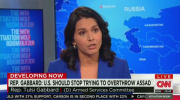 One point we’ve been particularly keen on driving home since the beginning of Russian airstrikes in Syria is that The Kremlin’s move to step in on behalf of Bashar al-Assad along with Vladimir Putin’s open “invitation” to Washington with regard to joining forces in the fight against terrorism effectively let the cat out of the proverbial bag. That is, it simply wasn’t possible for the US to explain why the Pentagon refused to partner with the Russians without admitting that i) the government views Assad, Russia, and Iran as a greater threat than ISIS, and ii) Washington and its regional allies don’t necessarily want to see Sunni extremism wiped out in Syria and Iraq. Article by Tyler Durden dated 31 October 2015 republished from Zero Hedge http://www.zerohedge.com/news/2015-10-31/congresswoman-calls-us-effort-oust-assad-illegal-accuses-cia-backing-terroists
One point we’ve been particularly keen on driving home since the beginning of Russian airstrikes in Syria is that The Kremlin’s move to step in on behalf of Bashar al-Assad along with Vladimir Putin’s open “invitation” to Washington with regard to joining forces in the fight against terrorism effectively let the cat out of the proverbial bag. That is, it simply wasn’t possible for the US to explain why the Pentagon refused to partner with the Russians without admitting that i) the government views Assad, Russia, and Iran as a greater threat than ISIS, and ii) Washington and its regional allies don’t necessarily want to see Sunni extremism wiped out in Syria and Iraq. Article by Tyler Durden dated 31 October 2015 republished from Zero Hedge http://www.zerohedge.com/news/2015-10-31/congresswoman-calls-us-effort-oust-assad-illegal-accuses-cia-backing-terroists
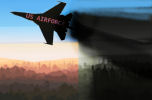 ALEPPO, SYRIA 31 October 2015: The fact that ISIS just seized a critical section the Aleppo-Khanasser highway, cutting off the government’s supply-lines to Aleppo was a major setback. (See reference article, "
ALEPPO, SYRIA 31 October 2015: The fact that ISIS just seized a critical section the Aleppo-Khanasser highway, cutting off the government’s supply-lines to Aleppo was a major setback. (See reference article, "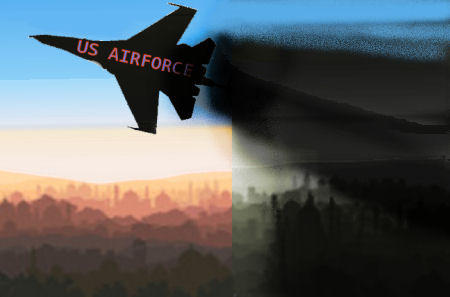 We have limited goods to consume, with limited resources of fuel and water. Prices are jumping higher for almost everything. I hope that situation to end soon.
We have limited goods to consume, with limited resources of fuel and water. Prices are jumping higher for almost everything. I hope that situation to end soon.
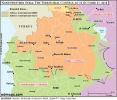 During the last days a large attack on the Syrian government supply line to Aleppo city was carried out by Jabhat al-Nusra (aka al-Qaeda in Syria) and the Islamic State seemingly in coordination with the U.S. military.
During the last days a large attack on the Syrian government supply line to Aleppo city was carried out by Jabhat al-Nusra (aka al-Qaeda in Syria) and the Islamic State seemingly in coordination with the U.S. military.
 The former head of the Australian Defence Force, Retired General Peter Gration, has signed an open letter to the Prime Minister opposing bombing raids in Syria. The open letter suggests bombing IS targets could strengthen the organisation and divide the Australian community, while increasing refugees and civilian casualties.
The former head of the Australian Defence Force, Retired General Peter Gration, has signed an open letter to the Prime Minister opposing bombing raids in Syria. The open letter suggests bombing IS targets could strengthen the organisation and divide the Australian community, while increasing refugees and civilian casualties.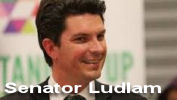 Senator Ludlam has called for War Powers reform and the obligation that all decisions on war involvement must be taken only in consultation with parliament. David Macilwain argues that the matter of Australian intervening militarily in Syria without Syria's permission should be pursued in the Senate and with the attorney general, George Brandis, because it is in breech of international law.
Senator Ludlam has called for War Powers reform and the obligation that all decisions on war involvement must be taken only in consultation with parliament. David Macilwain argues that the matter of Australian intervening militarily in Syria without Syria's permission should be pursued in the Senate and with the attorney general, George Brandis, because it is in breech of international law.
 The U.S. military is causing devastation to the environment. Joseph Nevins writes in 2010 that "The U.S. military is the world’s single biggest consumer of fossil fuels, and the single entity most responsible for destabilizing the Earth’s climate." The article states ". . . the Pentagon devours about 330,000 barrels of oil per day (a barrel has 42 gallons), more than the vast majority of the world’s countries." The amount of oil used by your military machine is beyond belief, and each military vehicle also releases pollutants through the exhaust. Tanks, trucks, Humvees and other vehicles are not known for their fuel economy. Other fuel guzzlers are submarines, helicopters and fighter jets. Each military flight, whether involved in the transport of soldiers or in a combat mission, contributes more carbon into the atmosphere. Candobetter.net editor: Unfortunately the Australian government supports this US war machine. Earth Day is Wednesday April 22, 2015. These letters will be sent for that occasion but they seek to involve the public earlier in this campaign against war.
The U.S. military is causing devastation to the environment. Joseph Nevins writes in 2010 that "The U.S. military is the world’s single biggest consumer of fossil fuels, and the single entity most responsible for destabilizing the Earth’s climate." The article states ". . . the Pentagon devours about 330,000 barrels of oil per day (a barrel has 42 gallons), more than the vast majority of the world’s countries." The amount of oil used by your military machine is beyond belief, and each military vehicle also releases pollutants through the exhaust. Tanks, trucks, Humvees and other vehicles are not known for their fuel economy. Other fuel guzzlers are submarines, helicopters and fighter jets. Each military flight, whether involved in the transport of soldiers or in a combat mission, contributes more carbon into the atmosphere. Candobetter.net editor: Unfortunately the Australian government supports this US war machine. Earth Day is Wednesday April 22, 2015. These letters will be sent for that occasion but they seek to involve the public earlier in this campaign against war.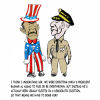 Despite the clear and convincing evidence that a 2013 Sarin attack in Syria was staged and effected by foreign intelligence agencies working with terrorist groups, to be used as a pretext for “humanitarian intervention”, this fabrication and other false allegations against the Syrian government are now being dusted off again, along with a suitable replacement “government in waiting”. But something happened in the meantime — Syria had a democratic presidential election with three candidates, in which even refugee expatriates went out of their way to vote - and Bashar Al Assad was returned with overwhelming approval. Any country ignoring the legality of the Assad Government in Syria surely does so at peril of later accusations of war-crimes.
Despite the clear and convincing evidence that a 2013 Sarin attack in Syria was staged and effected by foreign intelligence agencies working with terrorist groups, to be used as a pretext for “humanitarian intervention”, this fabrication and other false allegations against the Syrian government are now being dusted off again, along with a suitable replacement “government in waiting”. But something happened in the meantime — Syria had a democratic presidential election with three candidates, in which even refugee expatriates went out of their way to vote - and Bashar Al Assad was returned with overwhelming approval. Any country ignoring the legality of the Assad Government in Syria surely does so at peril of later accusations of war-crimes.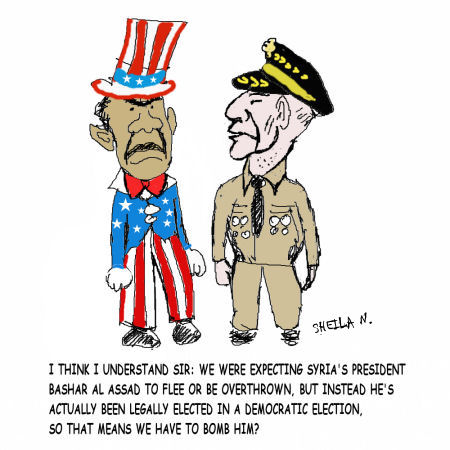 The following article was republished from a letter entitled, "Attacking Syria is simply illegal"
The following article was republished from a letter entitled, "Attacking Syria is simply illegal"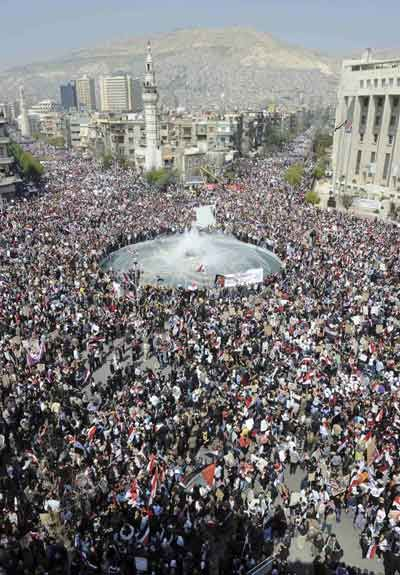
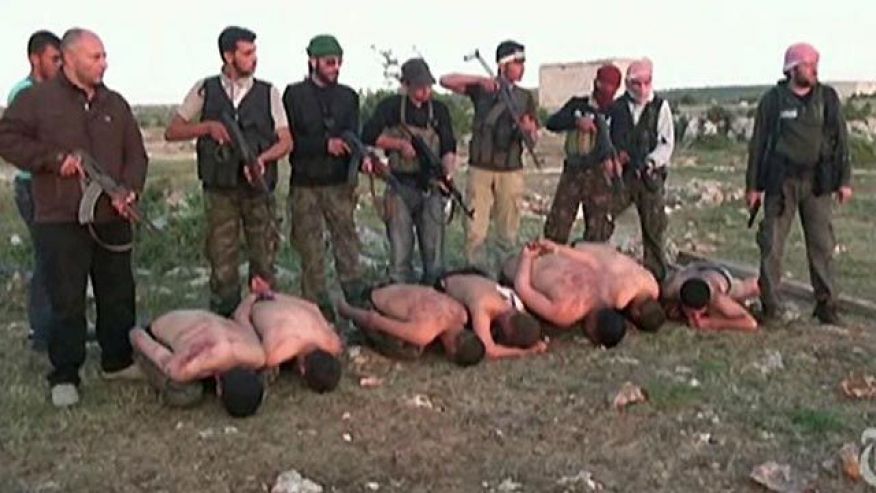

Recent comments